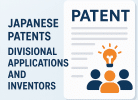Consulting and auditing firm PwC Japan released a 2018 analysis of economic crimes such as fraud and cyber attacks in Japanese corporations July 31, 2018, based on its Economic Crime and Fraud Survey 2018. The report’s results hint at improvement of security as well as corporate morality weaknesses and a need for greater protectiveness for IP to be secure.
Internal misdemeanors were notably common. 72% of the crimes reported were perpetrated by company employees, versus 52% overall (though down from 88% in 2016’s survey). Many of the guilty Japanese employees were in sales (27% versus 14% globally). This may be, the report surmises, due to pressures in Japanese companies to meet quotas (p. 14). On the other hand, sales pressures can be found worldwide! However, at the same time economic crimes were reported at an alarming percentage among senior management (29% up from 7% for 2016 of the Japanese internal criminals were in senior management).
As fraud is frequently reported in Japanese news, it seems people at many levels of Japanese business fall to the temptations of economic crimes. Thankfully, Japanese companies are raising their levels of vigilance against economic crime (respondents saying they have a full cybersecurity system in place doubled in two years though the full use rate is still at only 65%, p. 20)
Meanwhile, Japanese companies are continuing to produce tempting intellectual property (IP). A startlingly high percentage of discovered cyberattacks involved violation or theft of IP–25% versus 12% globally. This speaks of, on one hand, carelessness about IP by many in the company, and on the other, awareness of its great value by others, on the other (pp. 19-20).
Of course, the survey results only scratch the surface of problems that are probably more extensive than the auditors know. As awareness of risks to IP rises in campaigns by the Japanese government against pirated goods, the strict (or overly strict) pressures of JASRAC, and the the Japanese government aiming to leverage IP for national growth, both would-be thieves of IP and owners of it will be guarding their steps more carefully. Hopefully the latter will win out overall.
Note:
The survey on which the analysis was based included 182 Japanese respondents out of over 7,200 worldwide in a survey mid-2017 (p. 2). More details are available on the Survey in general in English here.
* The information provided on this website is for informational purposes only and is not intended as legal advice.
** For questions or consultation, please contact us for more information.
Taro Yaguchi
Sources
PwC Japan. 経済犯罪実態調査 2018(日本分析版) [Financial crime investigation 2018 (Japan analysis edition)], July 31, 2018. Page numbers in the article reference this Japanese-language report.






